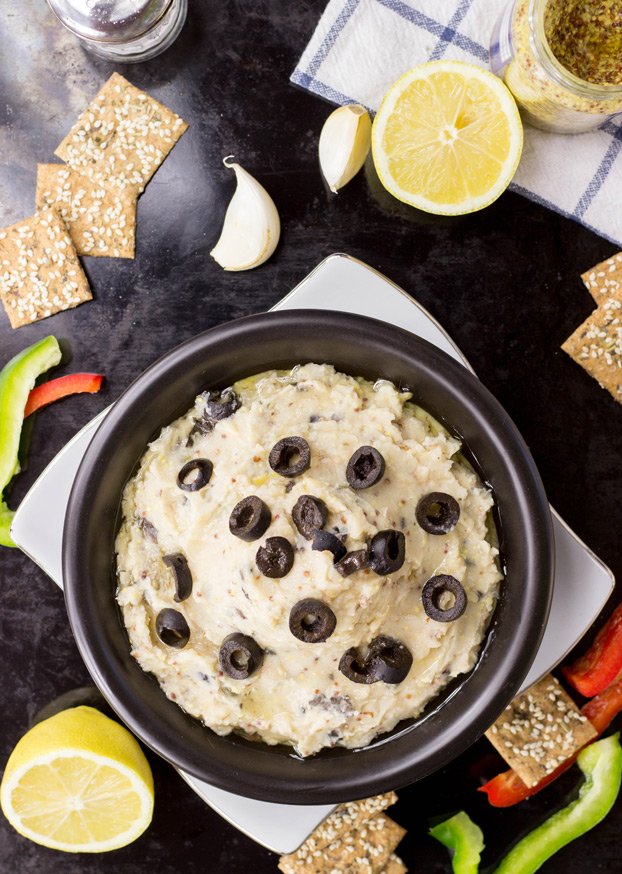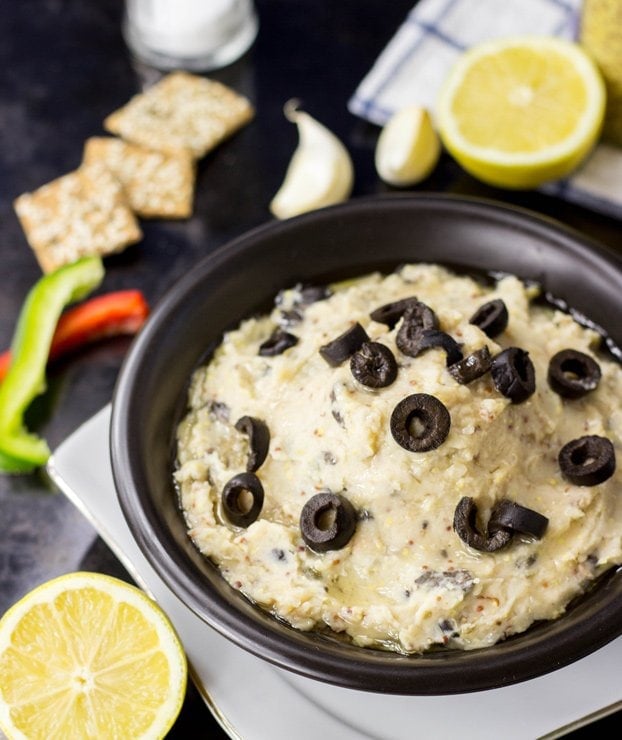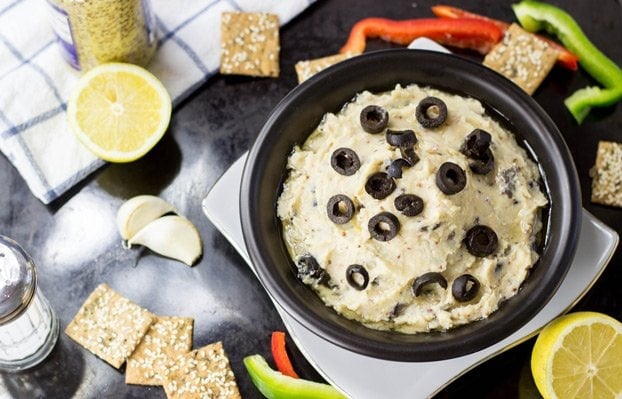Enter your email & we’ll send it to your inbox. Plus, get great new recipes from us every week! By submitting this form, you consent to receive emails from Hurry the Food Up. I love keeping fit and strong and playing sports but know when it’s time to kick back and do jack for a while. Something I’ve found in my relatively short years so far is that with so many things – too much is bad, and too little is bad. Finding a happy medium is often an excellent choice. I don’t always listen to my own advice however. Over the last few months I munched and munched black beans – in this high protein black bean lime dip, and in this delicious black bean and corn salad too. And…I ate them too much. So strong was my addiction, one day I even made a massive batch of the salad and ate it for breakfast, lunch and dinner. Now I need a break from them, but still love beans in general and thenutritional whack they provide. Sooooo…what to do? Well, create a new dip using white beans of course! The taste is totally different to the black bean dip, although it provides similar benefits. The mustard adds a distinct but not overwhelming background flavour, while the lemon juice and zest gives it a fresh, summery kick. It’s really nice, and can be used for dipping your favourite dippables into (think carrot sticks and so on), or spreading on toast as a healthy, homemade topping. And one last argument for this lovely dip – it’s vegan! Fantaaastic 😀
Health Benefits – High Protein White Bean Dip
Cannellini beans are very similar to kidney in terms of the nutritional value they provide (they’re pretty much just white kidney beans) – they contain awesome levels of fiber-protein, amazing for your blood/sugar level, keeping you feeling full for longer, your digestive system and even reducing the risk of heart attacks. Of course the protein also helps with muscle fatigue and regrowth. If you’re planning on transporting oxygen around your body (you are) then the high iron levels are crucial in keeping this working efficiently. Beans are also a great source of thiamin (vitamin B1). A lack of B1 is found to be a leading cause of Alzheimer’s disease (1). And nobody wants that, obviously. Time to eat beans… We want to know:




